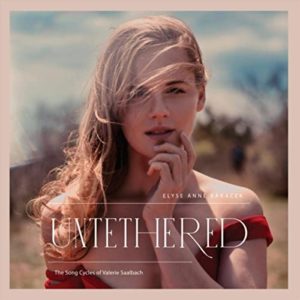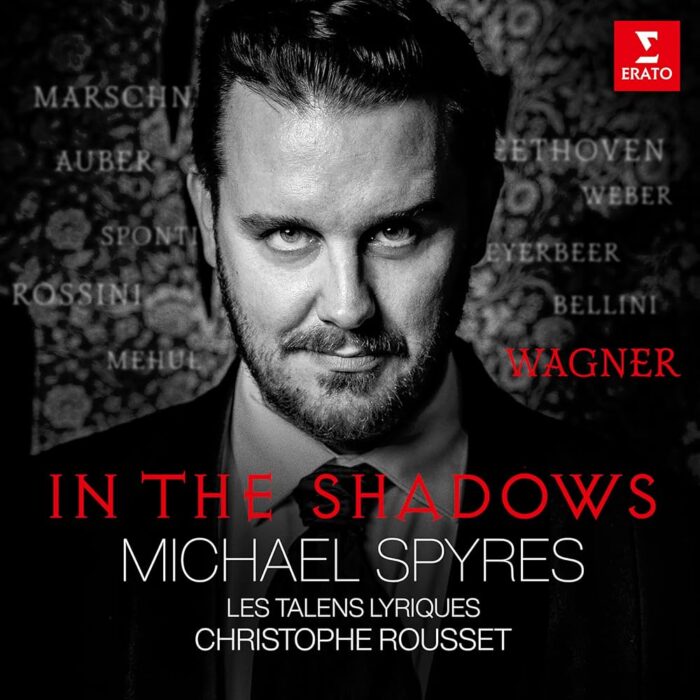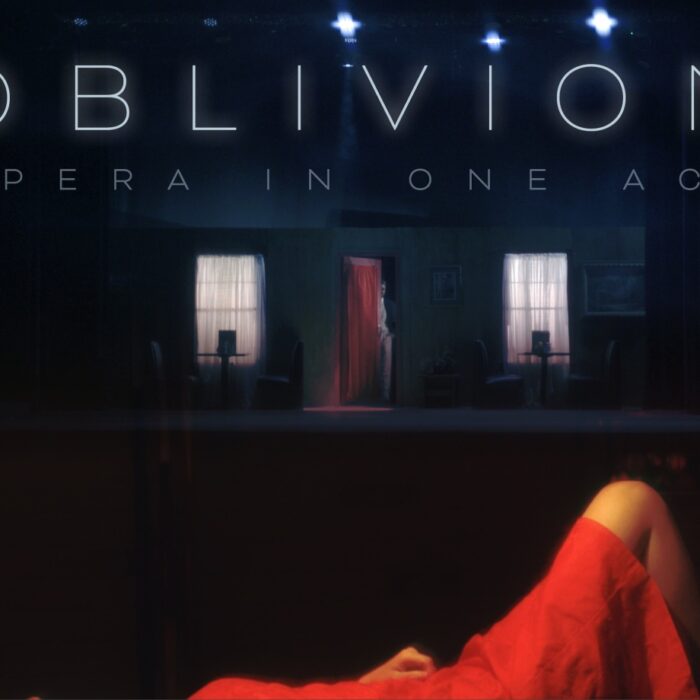
Off the Beaten Track: Soprano Elyse Anne Kakacek’s ‘Untethered:’ A Celebration of Passion
By Chris RuelAs so much of the world hunkers down during a pandemic that has shuttered live music venues for the foreseeable future, there’s no better time than now to discover new music.
“Off the Beaten Track” highlights an album of note–not necessarily a new recording, but one that has caught my attention as I explore the universe of classical vocal music.
With artists taking it on the nose financially due to cancelations, it is more important than ever to support them by appreciating their gifts through listening. Let’s give them and us a much-needed boost. I see many artists sharing on social media what they are listening to and “Off the Beaten Track” is very much an extension of that.
This month, I wish to share soprano Elyse Anne Kakacek’s “Untethered” with you. The album is a celebration of passion and erotic love, exploring composer Valerie Saalbach’s song cycles.
Kakacek, an up-and-coming artist, sets her smoldering lyricism into flame sparked by Saalbach’s source material, ranging from erotic poetry inspired Steven Kowit’s book “Gods of Rapture,” to Elizabeth Barrett Browning’s “Catarina de Comoens.” Selections of the work were performed in 2017 as part of Dell’Arte Opera Ensemble’s Untamed Festival. Pianist Christopher Fecteau accompanies Kakacek on “Untethered,” and serves as Artistic Director of Dell’Arte.
Full Spectrum Femme
In deciding to put together an album of Saalbach’s song cycles, Kakacek wanted to focus on a living female composer whose text was unblushing in its feminine centricity. Kakacek dedicates the album “to the divine, brave, and full spectrum femme within each of us.”
The cycles celebrate the experience love, physical and emotional, and the sensation of feeling untethered, like a kite rising on currents of love-fueled endorphins. Kakacek, in bringing Saalbach’s cycles to a recording required vulnerability, particularly in the first set of songs entitled “Journey of Desire.” The erotic nature of the set isn’t hidden, the text full of overt sexuality.
Two songs of note are the lazily lilting, Gershwin-esque, “In the Morning” and “When He Pressed His Lips,” showcase Kakacek’s ability to swing into delicious sultriness of voice. Saalbach brings the sensuality of Kowit’s Eastern-inspired sensual poetry and mingles it with the Western jazz and playful chromaticism.
“The Poems of Emily Dickinson” is far more subtle in its sensuality, with images of angels at play, heaven, morning, and wild nights. The Dickinson cycle brings out Kakacek’s strong upper range, fitting for a set dedicated to celestial imagery of love. “Wild nights!” was a favorite of mine, the piece starting with delightful bounciness in the piano line before Kakacek heads for the stars, proclaiming the joys of nocturnal adventures. Stunning interludes of arpeggiated chords roll upon the word “sea” on the second line of the third and final stanza before returning to the jauntiness of the opening. The cycle concludes on a literal high note, a resounding B flat.
Forbidden Love
The third and final cycle, “Catarina to Camoen,” consists of a poem written by Elizabeth Barrett Browning based on the love story between the celebrated 16th-century Portuguese poet Luís de Camões and Catarina de Ataíde. Camões, regarded as Portugal’s most revered poet is rumored to have engaged in a love affair with Catarina de Ataíde, a lady-in-waiting to Catherine of Austria, Queen of Portugal.
The poet’s supposed love of Ataíde may have caused his falling out of favor with King John III. There is some dispute over whether he was exiled to Morocco by the king or if he went on his own volition, seeking adventure. What is known is that Camões had run afoul of the law, taking part in a street fight that saw a royal officer take a few punches. However, the king pardoned Camões in 1553.
So, the question remains: Was it Camões’ hot, youthful temper or his hot romance with Ataíde that got him shipped to Morocco?
Barrett Browning, during her forbidden betrothal to Robert Browning, and while her health was failing, connected with the story, seeing herself as Catarina pining for her lover as death approached. Beneath the title of the poem, Barrett Browning inscribed the words: “Dying in his absence abroad, and referring to the poem in which he recorded the sweetness of her eyes.”
The cycle begins darkly. In Song I, a sustained, low E in the piano bass line hangs in the air as Kakacek is given license to sing her opening bars freely, coloring her words with deep longing. It’s a strong opener for a cycle that is hauntingly beautiful. Quite often in the Barrett Browning cycle, Kakacek is exposed, singing without accompaniment–her voice untethered.
The first eight bars of Song III required Kakacek to sing into the open piano lid with the pedal down. The effect is extraordinary, providing ghostly sublimity to the voice and augmenting it with an ethereal choir of soft overtones.
In addition to the Song III, the standout of the cycle for me is Song VII with its luxurious, flowing piano line that stayed in my head for some time after listening. This is one to put on repeat.
If you’re looking for some heat, Kakacek brings it with “Untethered.” And that’s this month’s find off the beaten track. Happy listening!



